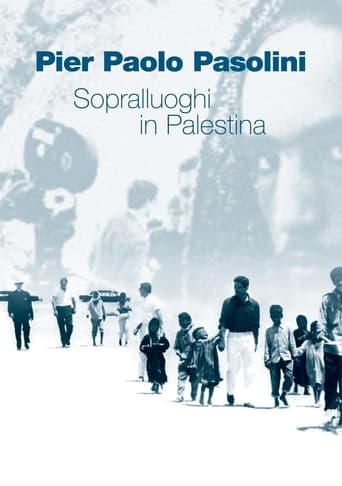lchadbou-326-26592
Today with the "making of" documentaries that have been regularly featured on laserdiscs and now DVDs, we are used to learning something about the locations used on various movies.What is unusual about "Hunting For Locations In Palestine," as it is informally known, is we get an explanation from the director of "The Gospel According To Saint Matthew," as to why he decided NOT to shoot in Israel. Pasolini's travelogue also functions on another level of interest as a document of what Israel looked like in the summer of 1963, 4 years before the momentous 1967 war- at least the parts that he visited. He is accompanied by a liberal Italian Catholic priest, Don Andrea. Though Pasolini was a very learned man, there are questions he has about biblical history and theology, which the reverend is there to answer. The director notices right away that though Israel features a humble, barren terrain, disappointing in a way when one thinks of the spectacular events of the Gospels, it has been "contaminated by modernity" (I use Sam Rohdie's translation.) There are kibbutzim, apartment buildings, industry. The faces of the common folk as well are not what he was looking for. (Though at several points when he describes the Muslim Arabs as looking "like animals," there was understandably an audible reaction of displeasure from the Berkeley audience where I saw this, as part of a PFA Pasolini series.) The director landed up recreating his biblical era in parts of Southern Italy, that were still quite rural and simple, the following spring and summer.

